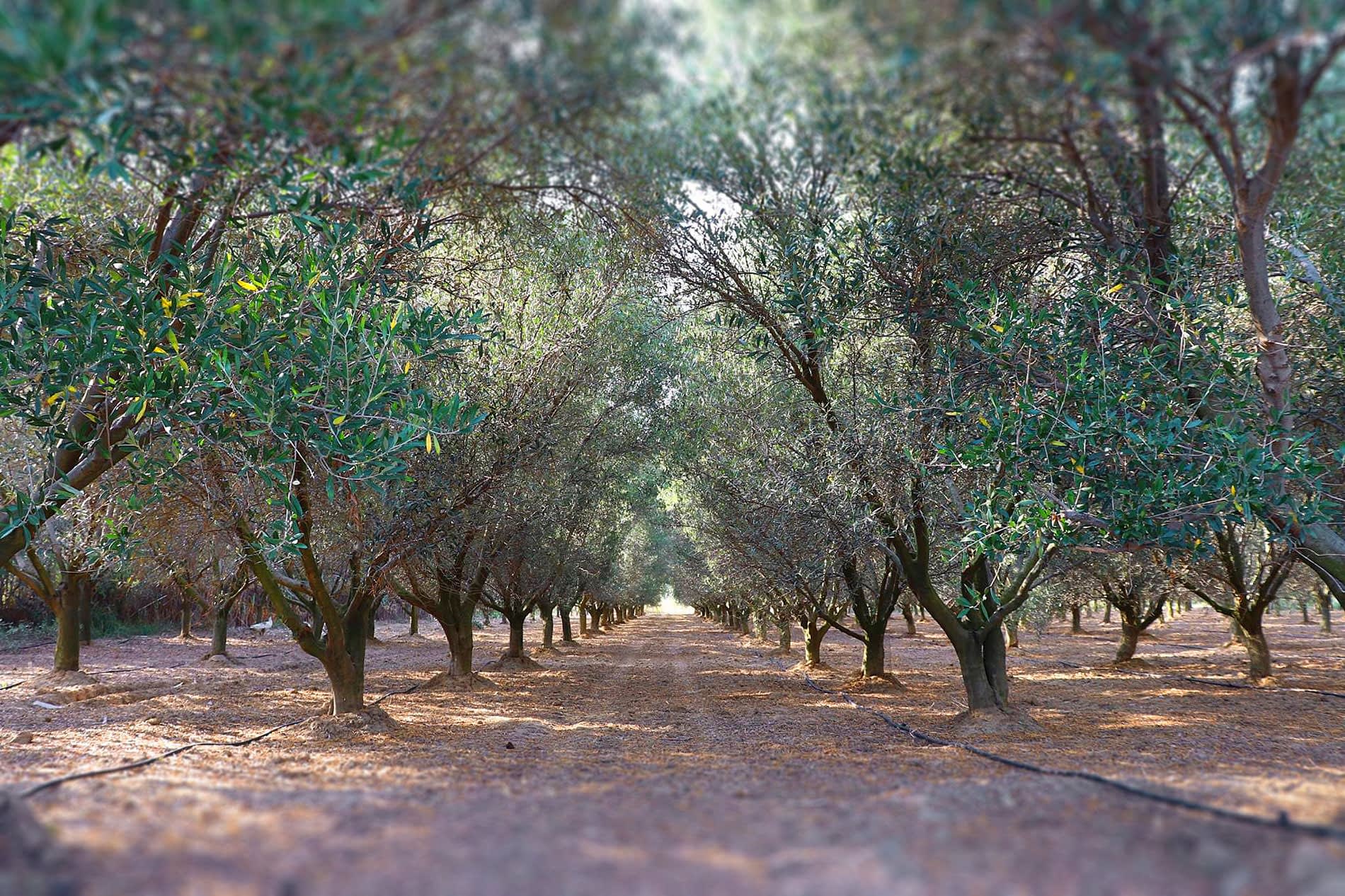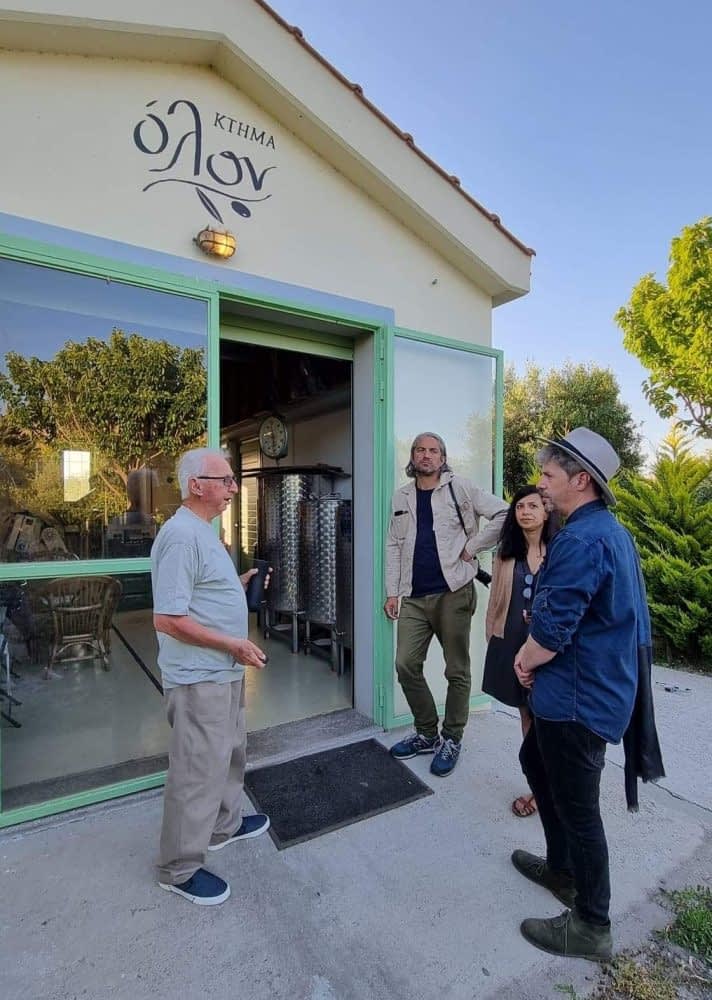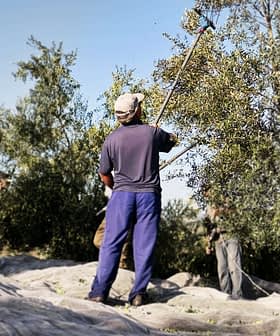When Tassis and Rena Laskaridis relocated from Athens to the northern Aegean island of Lemnos in 2007, they were surprised by how few olive trees grew on the island.
Though they had no previous experience in agriculture (Tassis was a retired architect and Rena, a French teacher) they decided to use their land to start Lemnos’ first olive grove.
“There were virtually no olive trees on the island at the time, and we were curious to see whether Lemnos could produce quality olive oil,” Rena told Olive Oil Times. “We planted 300 olive trees, and the outcome was surprisingly satisfying.”
Today, the couple produces olive oil at the privately-owned mill they built on Lemnos from hand-picked olives on their farm near the village of Kontias.
See Also:Producer Profiles“We are expanding, and we currently grow 1,850 olive trees at our Ktima Olon farm,” Laskaridis said. “We produce a premium, early-harvested and unfiltered organic extra virgin olive oil.”
“The harvest is done by hand in October, and we process the olives within a few hours,” she added. “The specialized equipment we use delivers a clear oil, free of impurities, so there is no need to submit it to filtration.”
“We market our oil in Greece, mainly Athens and Thessaloniki, and locally on the island,” she continued. “We also export to Finland and are currently negotiating to start exporting to France and the United Kingdom.”

Tassis and Rena Laskaridis
Laskaridis said the olive oil of Ktima Olon is high in polyphenols, bearing a health claim that meets the E.U. regulation 432/2012 requirements.
The regulation specifies that olive oils containing a certain amount of polyphenols – at least 5 milligrams per 20 grams of olive oil – can contribute to the protection of blood lipids from oxidative stress.
However, the farm’s Throumbolia cultivar, which the couple used to complement the Koroneiki, Adramytini and Manaki trees they had initially planted, has proven to be a real game-changer.
“The Throumbolia trees turned out to be very productive on Lemnos, equal to the Koroneiki trees,” Laskaridis said. “The olives of this cultivar contain 20 to 28 percent oil with excellent organoleptic characteristics.”
Yiorgos Kostelenos, an agronomist specializing in Greek olive varieties from the Peloponnese who supplied the Laskaridis couple with the trees for their olive grove, said that Throumbolia is a prominent cultivar, well-suited for the weather conditions prevailing in the Aegean Sea.

The olive grove of Ktima Olon
“Throumbolia is endemic to the islands of the Aegean,” Kostelenos told Olive Oil Times. “The oil extracted from Throumbolia olives is rich in phenolic compounds, especially those that exist in lower quantities in other cultivars such as the Oleokoronal.”
“However, the olives of the variety are prone to fruit fly infection,” he added. “Therefore, the strong Etesian winds that continuously buffet the islands of the archipelago create the perfect habitat for Throumbolia trees because they keep the humidity levels low and prevent the pest from multiplying.”
“There is a 6,000-year-old Throumbolia tree in Naxos, right at the center of the Aegean Sea, which still bears fruit,” Kostelenos continued.

Tassis Laskaridis with visitors at the mill
Having found solid ground in olive farming, Ktima Olon has evolved into a fully-fledged agritourism establishment accepting visitors looking to experience the allure of staying on a farm and learning about olive trees and olive oil.
Apart from olive trees, the owners grow various other fruits and vegetables on their farm. They also keep a small number of domestic animals to obtain the milk for the traditional cheeses of Lemnos they produce, the Melichloro and the Kalathaki.
Tassis and Rena Laskaridis advise their guests to add a couple of tablespoons of the extra virgin olive oil of Ktima Olon to their meals to taste the oil’s fruity flavor and benefit from its nutritional properties.
“We recommend consuming it raw in the morning, on salads, or with boiled and grilled vegetables and roasted meat,” they said. “The mildly bitter aftertaste you may sense is the result of the low oil’s acidity, and a slight burn in your throat is caused by the beneficial compounds in our olive oil.”
The Laskaridis couple’s successful olive oil venture has also motivated other farmers on the island to switch to olive farming. Rena Laskaridis estimated that around 70,000 olive trees are currently cultivated on Lemnos.
“We are excited to see Lemnos among the olive oil-producing territories of Greece,” the couple concluded. “Our dream is to be able to maintain and improve [our farm] and at the same time enter the olive oil markets more strongly.”









